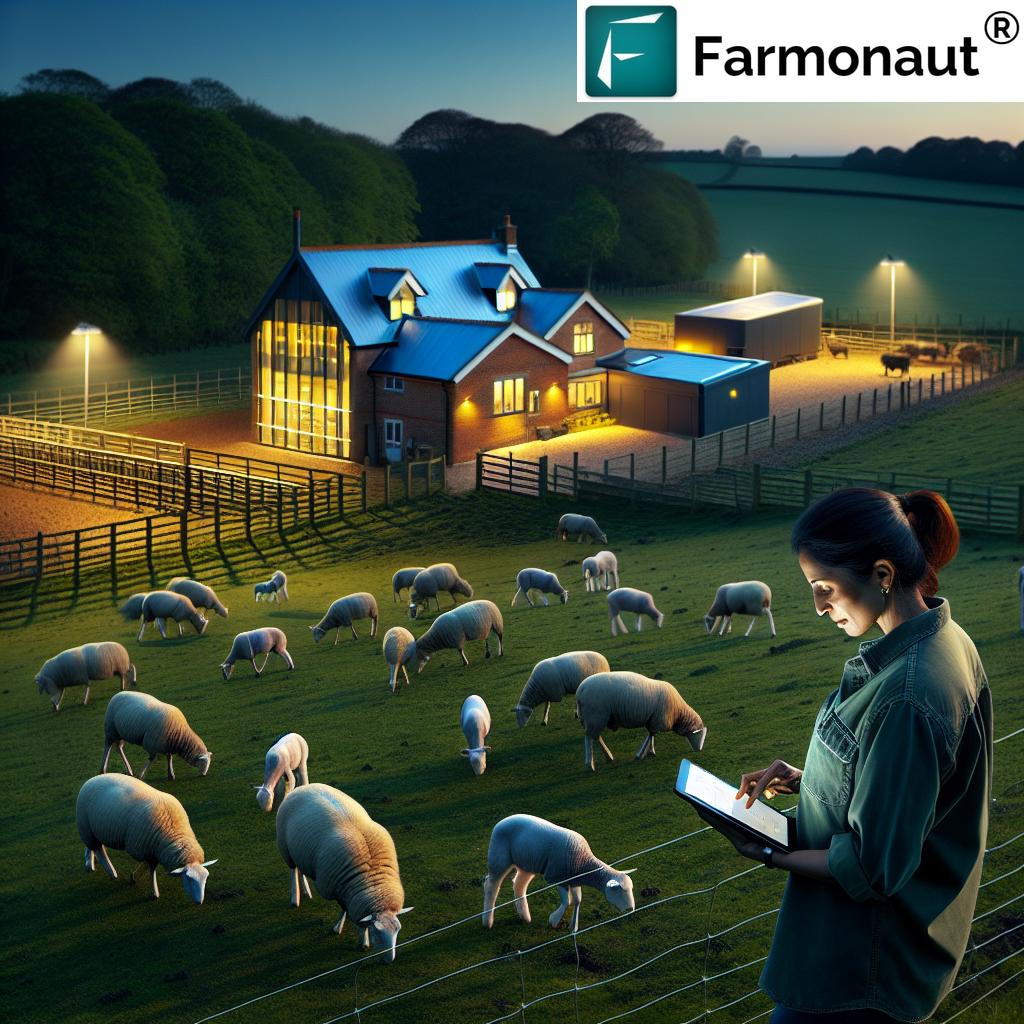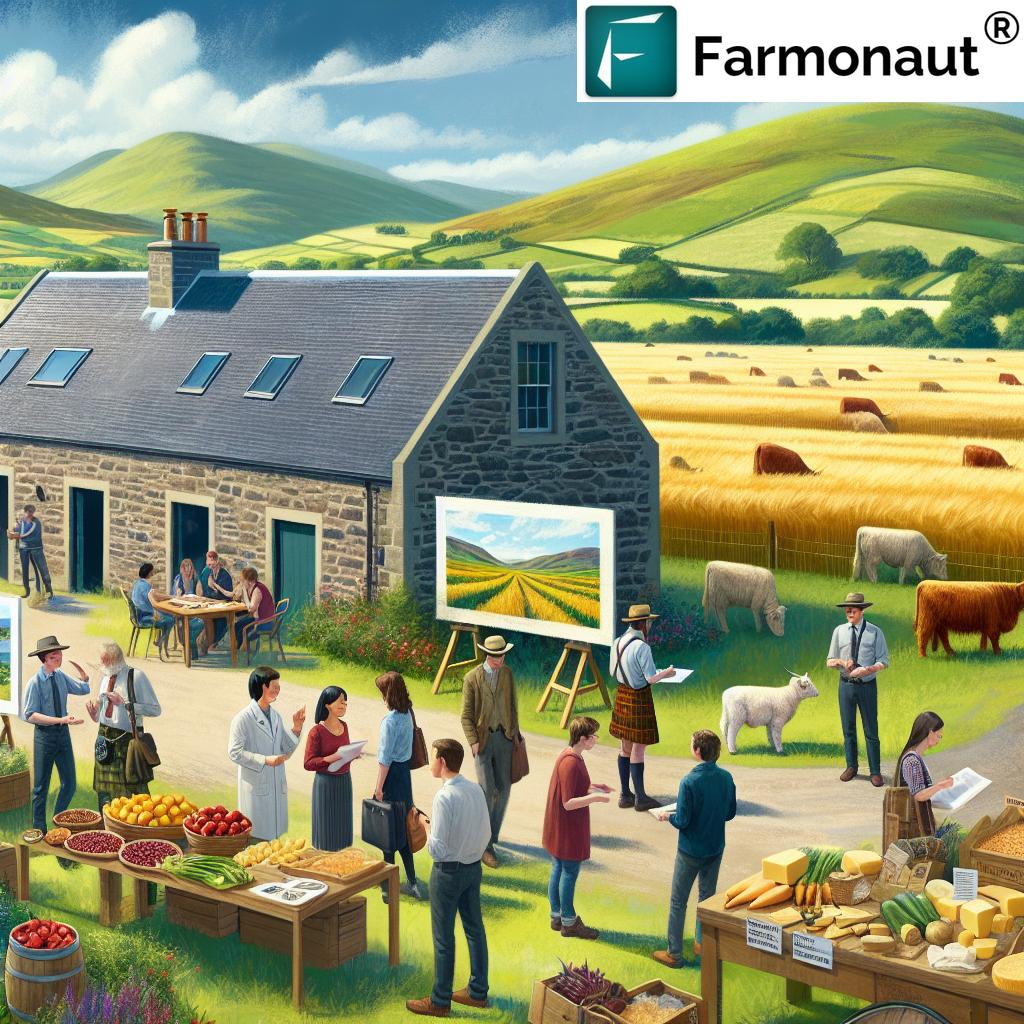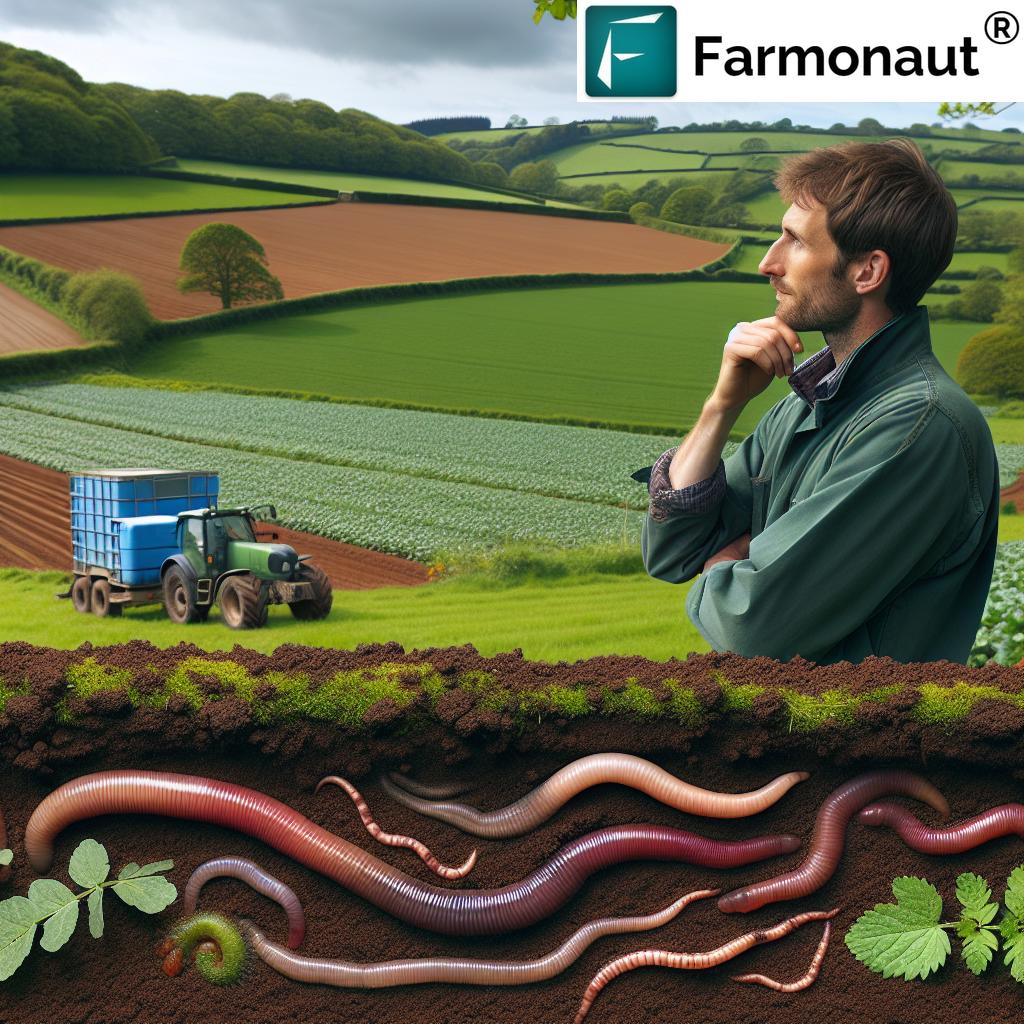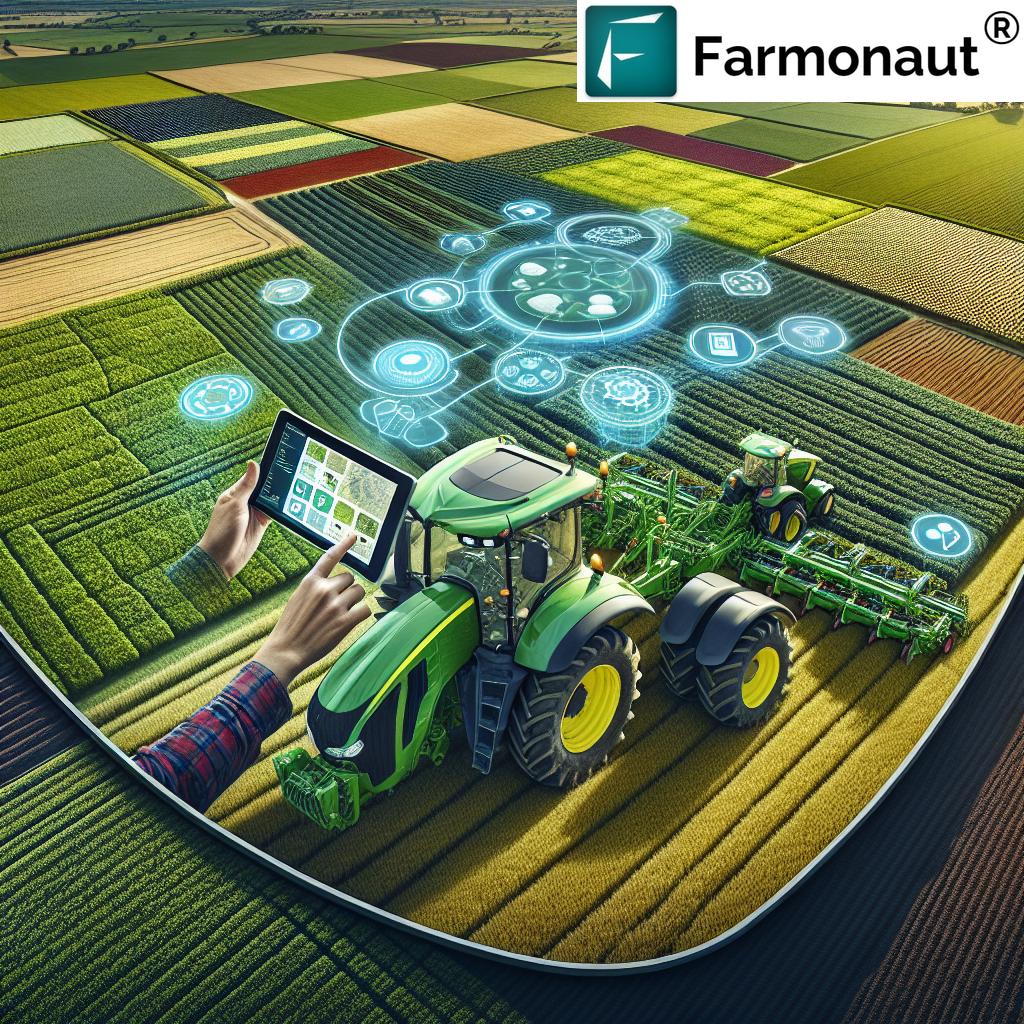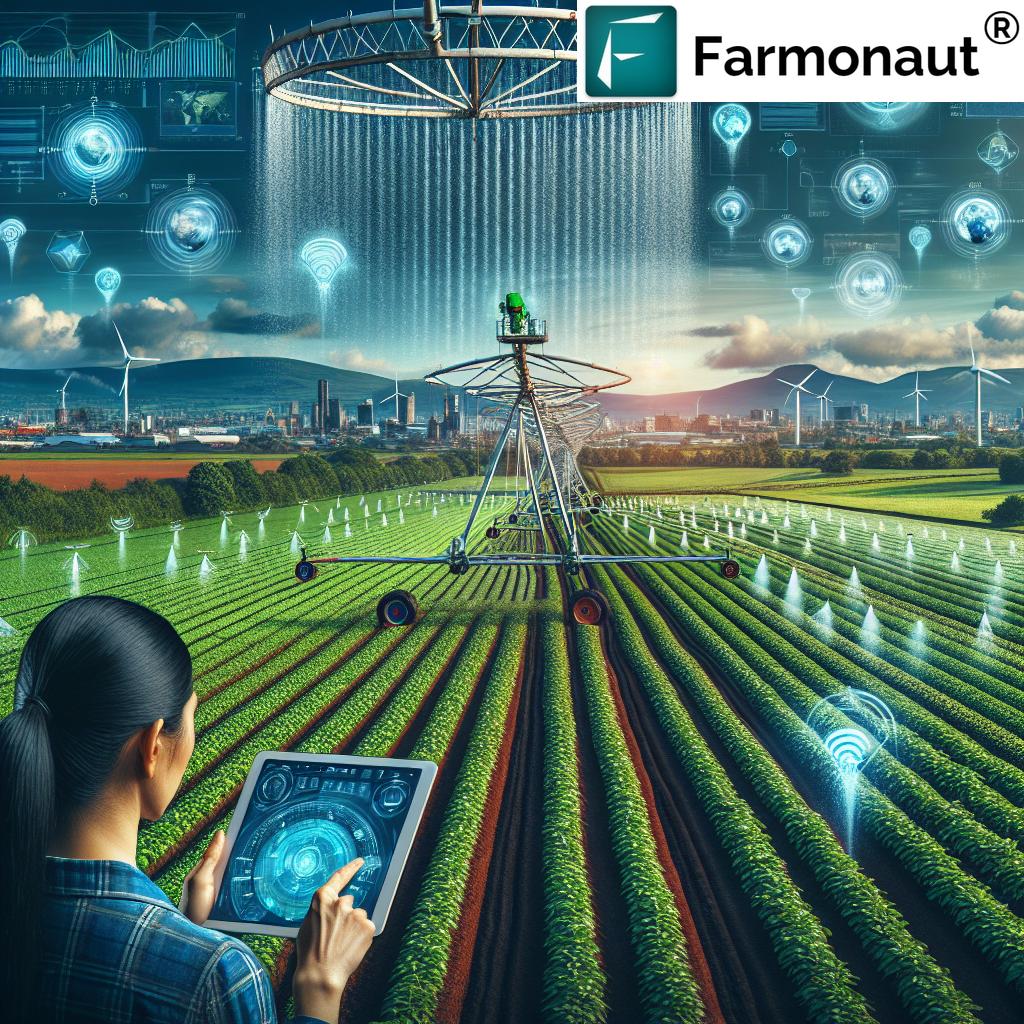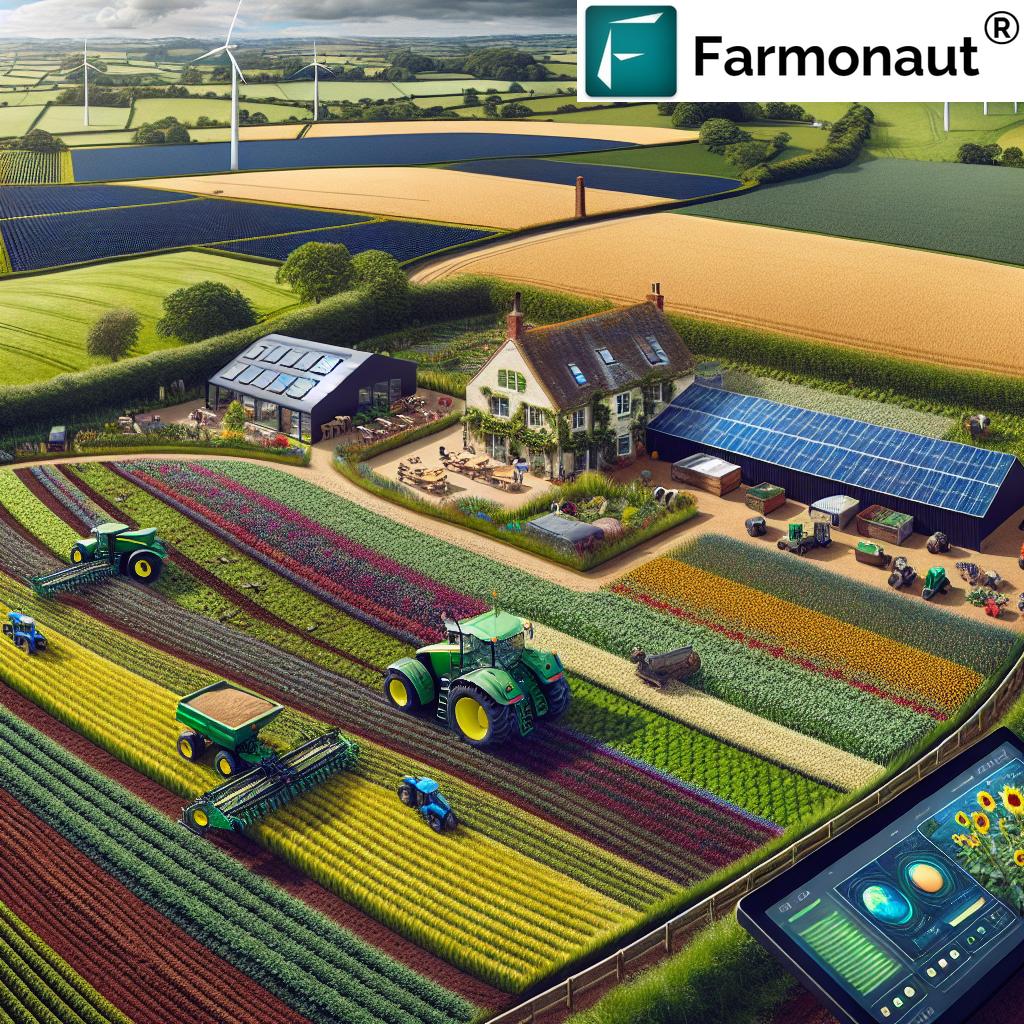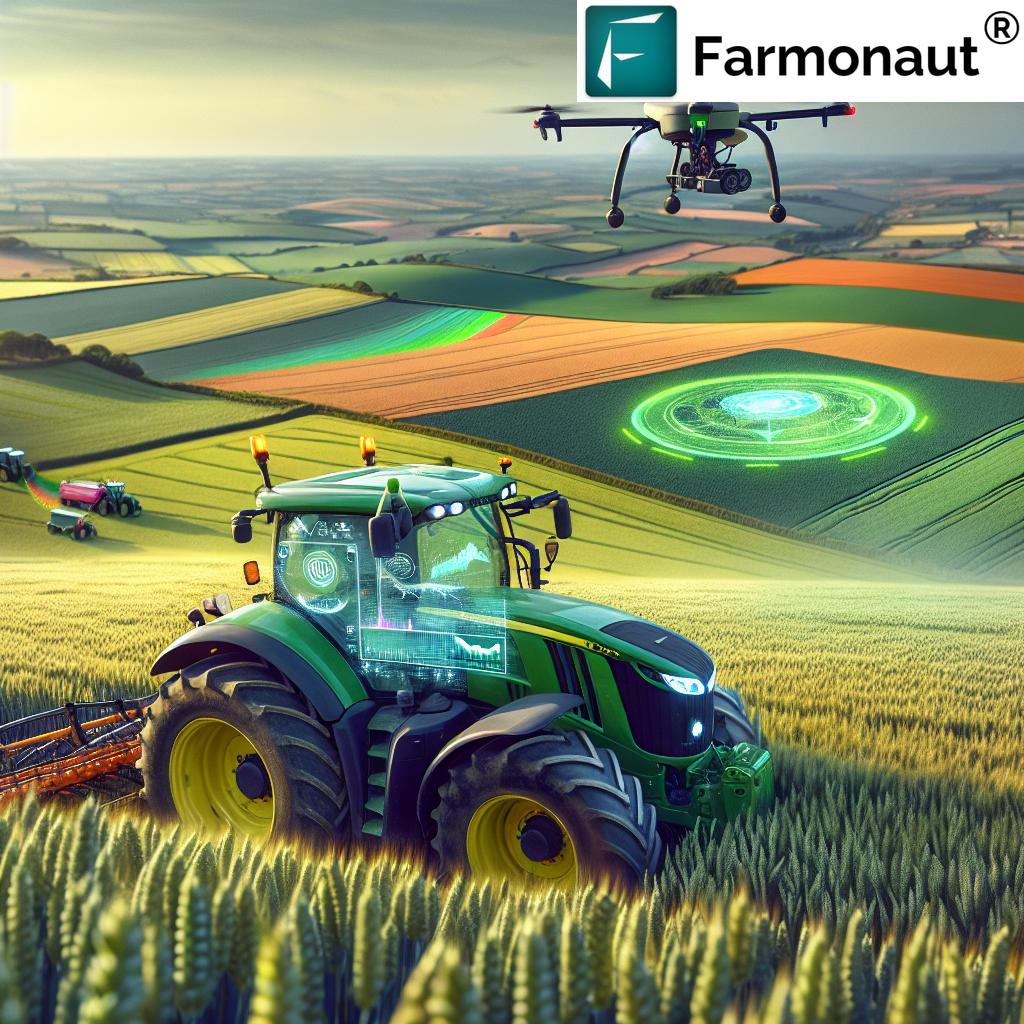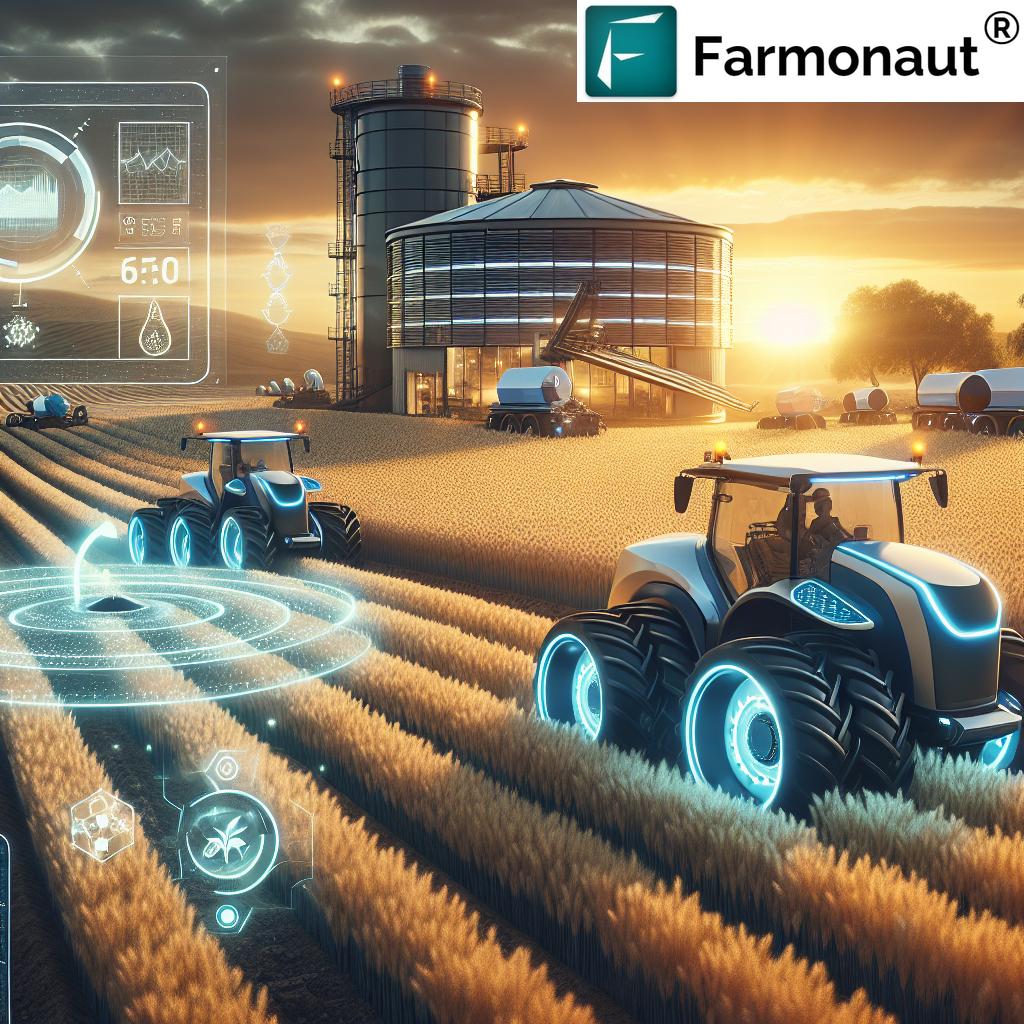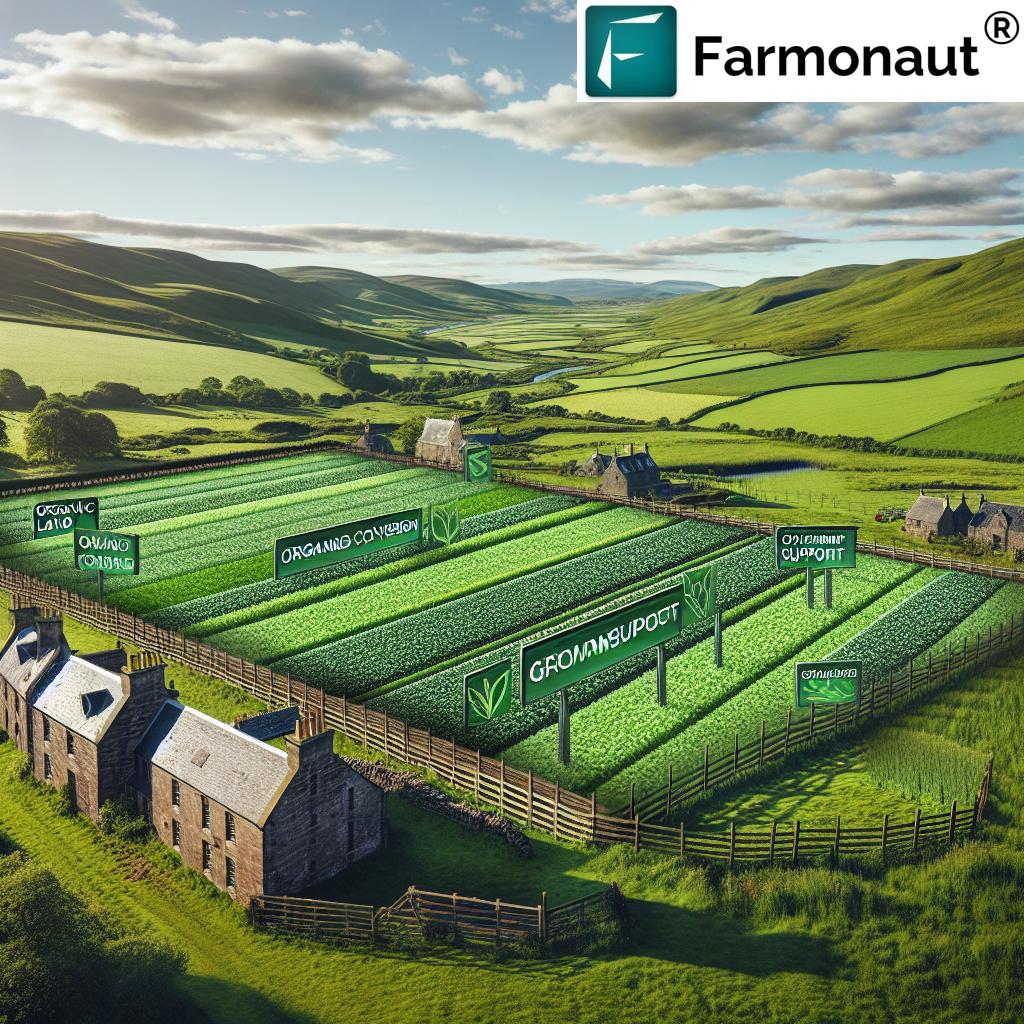Revolutionizing Precision Agriculture: How Quantum Technology and GPS are Transforming Smart Farming in the UK

“Quantum technology could improve GPS accuracy from meters to centimeters, revolutionizing precision agriculture in the UK.”
In the realm of agriculture, we are witnessing a technological revolution that is reshaping the way we cultivate our lands and manage our farms. At the forefront of this transformation are quantum technology and GPS systems, which are setting new standards for precision agriculture in the United Kingdom and beyond. As we delve into this exciting topic, we’ll explore how these groundbreaking advancements are not only enhancing crop monitoring and boosting farm management efficiency but also paving the way for a more sustainable and productive future in farming.
The Quantum Leap in Agricultural Technology
The UK’s recent announcement of developing its first quantum clock marks a significant milestone in the country’s technological advancement. This cutting-edge device, with its extraordinary precision, is set to revolutionize various sectors, including agriculture. But what does a quantum clock have to do with farming? Let’s break it down.
- Unprecedented Accuracy: Quantum clocks lose less than one second over billions of years, providing unparalleled accuracy in timekeeping.
- Enhanced GPS Capabilities: This precision translates to improved GPS systems, crucial for precision agriculture.
- Reduced Vulnerability: Quantum technology reduces reliance on traditional GPS, which can be disrupted by adversaries.
The implications of this technology for smart farming are vast. With quantum-enhanced GPS, farmers can achieve sub-centimeter accuracy in their field operations, from planting to harvesting. This level of precision was once thought impossible but is now becoming a reality.
Satellite Navigation: The Backbone of Precision Agriculture
Satellite navigation has been a game-changer in agriculture, and with quantum enhancements, its potential is skyrocketing. Here’s how advanced satellite navigation is transforming farming practices:
- Precise Field Mapping: Farmers can create highly accurate maps of their fields, including soil types and crop health variations.
- Automated Machinery: GPS-guided tractors and harvesters can operate with minimal human intervention, reducing errors and improving efficiency.
- Variable Rate Applications: Fertilizers and pesticides can be applied precisely where needed, reducing waste and environmental impact.
These advancements are not just theoretical; they’re being implemented right now. For instance, Farmonaut’s satellite-based farm management solutions are at the forefront of this revolution, offering farmers access to cutting-edge technology through user-friendly platforms.

Quantum Computing: The Next Frontier in Farm Management
While quantum clocks and enhanced GPS are revolutionizing field operations, quantum computing is set to transform farm management and decision-making processes. Here’s how:
- Complex Data Analysis: Quantum computers can process vast amounts of agricultural data in minutes, providing insights that would take traditional computers years to calculate.
- Predictive Modeling: Advanced weather forecasting and crop yield predictions become more accurate, helping farmers make informed decisions.
- Optimization Algorithms: Quantum computing can optimize resource allocation, from water usage to supply chain management, at an unprecedented scale.
The potential of quantum computing in agriculture is immense, and we’re only scratching the surface. As this technology matures, we can expect to see even more innovative applications in smart farming.
Digital Farming Solutions: Bridging Technology and Agriculture
As quantum technology and GPS systems evolve, digital farming solutions are becoming increasingly sophisticated. These platforms integrate various technologies to provide comprehensive farm management tools. Let’s explore some key features:
- Real-time Crop Monitoring: Satellite imagery and ground sensors provide up-to-date information on crop health and growth stages.
- AI-powered Advisories: Machine learning algorithms analyze data to offer personalized recommendations for crop management.
- Blockchain Integration: Ensuring transparency and traceability in the agricultural supply chain.
Companies like Farmonaut are leading the charge in this area, offering API access to developers and businesses, enabling the integration of satellite and weather data into various agricultural systems. This democratization of technology is crucial for widespread adoption of precision agriculture techniques.
“Over 60% of UK farmers now use satellite-based technologies for crop monitoring and farm management optimization.”
The Global Race for Quantum Technology in Agriculture
The development of quantum technology is not limited to the UK. Countries around the world are investing heavily in this field, recognizing its potential to revolutionize various sectors, including agriculture. Here’s a glimpse of the global landscape:
- United States: Significant investments in quantum research, with companies like Google making breakthroughs in quantum computing.
- China: Ambitious plans to become a world leader in quantum technology, with applications in agriculture being a key focus.
- European Union: Collaborative efforts across member states to advance quantum research and its applications in various fields.
This global competition is driving rapid advancements in quantum technology, which will undoubtedly benefit the agricultural sector in the coming years.
Precision Crop Monitoring: A Quantum-Powered Revolution
One of the most significant impacts of quantum technology and advanced GPS systems in agriculture is in the field of crop monitoring. The level of precision and detail now available to farmers is unprecedented. Here’s how it’s changing the game:
- Hyperspectral Imaging: Quantum sensors enable the capture of detailed spectral information, revealing crop health issues before they’re visible to the naked eye.
- Micro-climate Monitoring: Precise weather data at a field level helps in making informed decisions about irrigation and pest control.
- Soil Health Analysis: Quantum-enhanced sensors can provide real-time data on soil composition and nutrient levels.
These advancements allow farmers to respond quickly to potential issues, optimizing crop yields and reducing resource waste. Platforms like Farmonaut are making these technologies accessible to farmers of all scales, democratizing precision agriculture.
The Role of Artificial Intelligence in Smart Farming
While quantum technology and GPS form the backbone of precision agriculture, artificial intelligence (AI) acts as the brain, processing vast amounts of data and providing actionable insights. Here’s how AI is complementing quantum advancements in smart farming:
- Predictive Analytics: AI algorithms can forecast crop yields, pest outbreaks, and market trends with increasing accuracy.
- Automated Decision Support: AI-powered systems can suggest optimal times for planting, harvesting, and applying inputs.
- Image Recognition: AI can analyze satellite and drone imagery to identify crop diseases, weeds, and nutrient deficiencies.
The synergy between quantum technology, GPS, and AI is creating a new paradigm in agricultural intelligence, enabling farmers to make data-driven decisions with unprecedented precision.
Sustainable Farming Practices Enabled by Quantum Technology
The precision offered by quantum-enhanced technologies is not just about increasing yields; it’s also about promoting sustainability in agriculture. Here’s how these advancements are contributing to more eco-friendly farming practices:
- Reduced Chemical Usage: Precise application of pesticides and fertilizers minimizes environmental impact.
- Water Conservation: Accurate soil moisture sensing leads to optimized irrigation, saving water resources.
- Carbon Footprint Reduction: Efficient farm operations result in lower fuel consumption and reduced emissions.
By enabling these sustainable practices, quantum technology and GPS are helping farmers meet the growing demand for environmentally responsible agriculture.
The Future of Farming: Quantum Sensors and Beyond
As we look to the future, the potential applications of quantum technology in agriculture seem limitless. Here are some exciting prospects on the horizon:
- Quantum Biosensors: Ultra-sensitive devices that can detect plant diseases at the molecular level.
- Quantum-Enhanced Weather Prediction: Even more accurate long-term weather forecasts to aid in crop planning.
- Quantum-Secured Data Networks: Ensuring the privacy and security of sensitive agricultural data.
These emerging technologies promise to further revolutionize farming practices, making agriculture more efficient, sustainable, and resilient in the face of global challenges.
Comparison of Precision Agriculture Technologies
| Technology | Accuracy | Data Processing Speed | Energy Efficiency | Potential Applications in Agriculture |
|---|---|---|---|---|
| Quantum-Enhanced GPS | Sub-centimeter accuracy | Near real-time | High | Ultra-precise crop monitoring, Automated machinery guidance |
| Traditional GPS | Meter-level accuracy | Real-time | Moderate | Basic field mapping, General navigation |
| Quantum Sensors | Molecular-level detection | Instantaneous | Very High | Early disease detection, Soil composition analysis |
| Quantum Computing in Farm Management | N/A | Exponentially faster than classical computers | Variable | Complex crop modeling, Optimized resource allocation |
Integrating Quantum Technology with Existing Farm Systems
The transition to quantum-enhanced farming doesn’t mean a complete overhaul of existing systems. Instead, it’s about integrating these new technologies with current practices. Here’s how farmers can start incorporating quantum-powered solutions:
- Gradual Adoption: Start with quantum-enhanced GPS for basic field mapping and gradually expand to more advanced applications.
- Data Integration: Use platforms that can combine data from quantum sensors with existing farm management software.
- Training and Education: Invest in training for farm staff to effectively use and interpret data from quantum-powered systems.
By taking a phased approach, farmers can reap the benefits of quantum technology without overwhelming their operations.
The Role of Government and Industry in Advancing Quantum Agriculture
The development and adoption of quantum technology in agriculture require collaboration between various stakeholders. Here’s how different sectors are contributing:
- Government Initiatives: Funding research and development in quantum agriculture, creating supportive policies.
- Industry Partnerships: Collaborations between tech companies and agricultural firms to develop practical applications.
- Academic Research: Universities leading groundbreaking studies in quantum technology for agriculture.
These collaborative efforts are crucial in bridging the gap between theoretical quantum physics and practical agricultural applications.
Challenges and Considerations in Implementing Quantum-Powered Agriculture
While the potential of quantum technology in agriculture is immense, there are challenges to overcome:
- Cost: Initial investment in quantum technology can be high, potentially limiting access for smaller farms.
- Complexity: The sophisticated nature of quantum systems may require specialized knowledge to operate and maintain.
- Data Privacy: With increased data collection and processing, ensuring farmer privacy and data security becomes crucial.
Addressing these challenges will be key to the widespread adoption of quantum-powered agricultural solutions.
Conclusion: The Quantum Future of UK Agriculture
As we’ve explored throughout this article, the integration of quantum technology and advanced GPS systems is set to revolutionize agriculture in the UK and beyond. From enhancing precision in crop monitoring to enabling sophisticated farm management through AI and quantum computing, these technologies are paving the way for a more efficient, sustainable, and productive agricultural sector.
The development of the UK’s quantum clock is just the beginning. As research progresses and technologies mature, we can expect to see even more groundbreaking applications in smart farming. The future of agriculture is quantum-powered, and it’s an exciting time for farmers, technologists, and consumers alike.
For those looking to stay at the forefront of this agricultural revolution, platforms like Farmonaut offer accessible entry points into the world of precision agriculture. By leveraging satellite technology, AI, and data-driven insights, farmers can start benefiting from these advancements today, preparing their operations for the quantum future that lies ahead.
As we move forward, the collaboration between government, industry, and academia will be crucial in realizing the full potential of quantum technology in agriculture. With continued investment and innovation, the UK is poised to become a leader in quantum-powered smart farming, setting new standards for agricultural efficiency and sustainability worldwide.
FAQ Section
Q: What is quantum technology in agriculture?
A: Quantum technology in agriculture refers to the application of quantum physics principles to enhance farming practices. This includes ultra-precise GPS systems, advanced sensors for crop and soil monitoring, and quantum computing for complex agricultural data analysis.
Q: How does quantum-enhanced GPS improve farming?
A: Quantum-enhanced GPS provides sub-centimeter accuracy, allowing for precise field mapping, automated machinery guidance, and targeted application of inputs like fertilizers and pesticides. This level of precision significantly improves efficiency and reduces waste.
Q: What are the benefits of using quantum sensors in agriculture?
A: Quantum sensors can detect subtle changes in plant health, soil composition, and environmental conditions at a molecular level. This enables early detection of crop diseases, more accurate soil analysis, and better-informed decision-making for farm management.
Q: How is quantum computing being used in farm management?
A: Quantum computing is used to process vast amounts of agricultural data quickly, enabling complex crop modeling, optimized resource allocation, and more accurate predictive analytics for weather patterns and market trends.
Q: Are quantum technologies in agriculture accessible to small farmers?
A: While some quantum technologies may have high initial costs, many applications are becoming more accessible through platforms like Farmonaut, which offer satellite-based farm management solutions. As technology advances, it’s expected that quantum-powered tools will become increasingly available to farmers of all scales.
Q: How does quantum technology contribute to sustainable farming?
A: Quantum technology enables more precise resource management, reducing the use of water, fertilizers, and pesticides. This precision leads to lower environmental impact, decreased carbon footprint, and more sustainable farming practices overall.
Q: What challenges exist in implementing quantum technology in agriculture?
A: Key challenges include the initial cost of implementation, the need for specialized knowledge to operate quantum systems, and ensuring data privacy and security. Overcoming these challenges will be crucial for widespread adoption.
Q: How can farmers start incorporating quantum-powered solutions into their operations?
A: Farmers can begin by adopting quantum-enhanced GPS for basic field mapping and gradually integrate more advanced applications. Utilizing platforms that combine quantum sensor data with existing farm management software is a practical first step.
Q: What role do government and industry play in advancing quantum agriculture?
A: Governments provide funding for research and development and create supportive policies. Industry partners collaborate to develop practical applications, while academic institutions lead groundbreaking studies in quantum technology for agriculture.
Q: What does the future hold for quantum technology in UK agriculture?
A: The future looks promising, with continued research and development expected to yield even more sophisticated applications. The UK is positioning itself as a leader in quantum-powered smart farming, which could set new global standards for agricultural efficiency and sustainability.
Ready to explore the future of farming? Check out Farmonaut’s innovative solutions:
For developers interested in integrating Farmonaut’s technology, check out our API Developer Docs.




